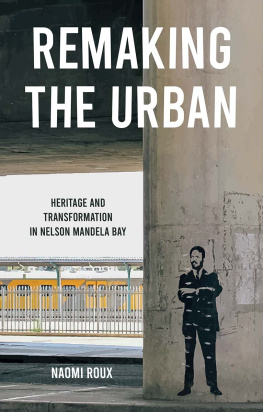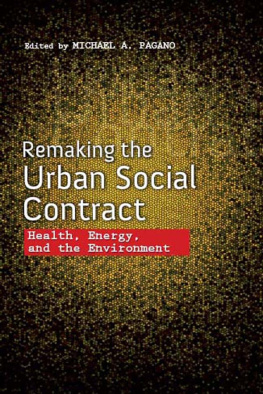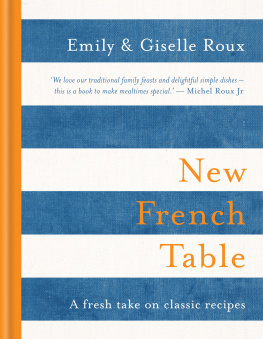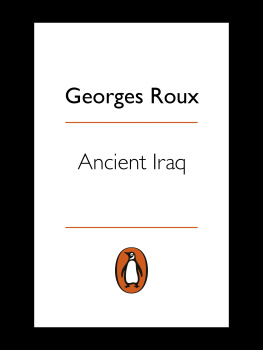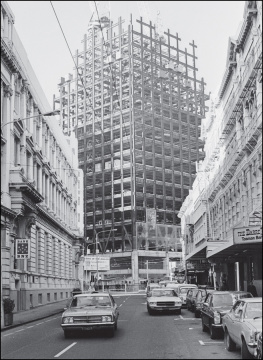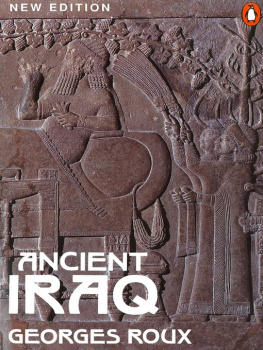Nothing happens without community. I have been extraordinarily fortunate to have had the support, assistance, care and love of so many different people while making this book. If I had to name every person whose presence has had a bearing on this work, these acknowledgements would need to be a full chapter on their own: but I trust that you know who you are, and I am beyond grateful to each of you.
In particular, this book would not exist without the ongoing support of Annie Coombes. Annies insight, warmth and intellectual rigour were crucial to the process of researching and writing this text. I am grateful too for her periodic check-ins that encouraged me not to let this project drop, despite the long road to completing it.
The research, travel and writing time for this project were variously funded by the Oppenheimer Memorial Trust, the Birkbeck School of Arts, the Andrew W. Mellon Foundation, the Foundation for Urban and Regional Studies, and the French Institute of South Africa. An early research trip that planted the seed for the work was funded by Wits Universitys Centre for Urbanism and Built Environment Studies. Space and time to think, consolidate and write between 2015 and 2017 was provided by LSE Cities at the London School of Economics and by the African Centre for Cities at the University of Cape Town (UCT). This work would never have begun, let alone been completed, without this support.
There are so many people in Nelson Mandela Bay who gave generously of their time and their expertise via countless hours of interviews, conversations, meals shared, walks, ideas and good humour. Christopher Du Preez was exceptionally supportive of this work even before I knew what it was going to be. Janet Cherry and Theresa Edlmann invited me to participate in workshops and meetings with the Legacies of Apartheid Wars Project, and I have benefited so much from their deep knowledge of history and passion for building on the past to make better futures. Yusuf Agherdien has become a good friend and co-creator. I am indebted to Colin Abrahams, Manoura Abrahams, Michael Barry, Mary Duker, Gregory George, Lungiswa Gitywa, Mkhonto Gwazela, Albrecht Heroldt, Errol Heynes, Henderson Jacobs, Mbuyiseli Jam, Palesa Kadi, Andile Kondlo, Xolani Kota, Lungelwa Makina, Mzwandile Mgubase, Nontsikelelo Mngadi, Pumla Mngadi-Mntanga, Funeka Lizzy Msizeni, Simphiwe Msizi, Ismaiel Nakerdien, Mxolisi Ndovane, Xolisa Ngubelanga, Michael Nicholas, Jo Noero, Ntobeko Qolo, Vuyisile Pandle, Sidney Prince, Rory Riordan, Dorelle Sapere, Nonceba Shoba, Nomangesi Sitole, Mncedisi Sitoto, Monwabisi Soxuza, Peter Stark, Jimmy Tutu, Pierre Voges, Charmaine Williams, Sheila Wilson, Harold Wilson, Bryan Wintermeyer, Heinrich Wolff, Alan Zinn and so many others who shared their experiences and stories with me.
The staff of many institutions in the Eastern Cape have facilitated access to archives and sources and patiently answered endless questions. I am particularly grateful to the staff of the Red Location Museum of Struggle, the South End Museum, the Arts and Culture Department at Nelson Mandela Metropolitan University, the NMMU library, the Nelson Mandela Bay Municipality, the Mandela Bay Development Agency, the archives of the Eastern Cape Heraldand the Port Elizabeth Public Library. I was also generously assisted by members of the Northern Areas History and Heritage Project, the Legacies of Apartheid Wars Project, the New Brighton Concerned Residents Group and the Red Location Womens Cooperative.
Richard Ballard, Carli Coetzee, Shari Daya, Suzanne Hall, Paul Holden, Jeremy Krikler, Kim Miller, Noeleen Murray, Sophie Oldfield, Susan Parnell, Gordon Pirie, Daniel Roux, Brenda Schmahmann, Kate Thompson and Jill Weintroub read and commented on early versions and other iterations of several of these chapters, along with several anonymous reviewers. I am so grateful for all of your insights. For ongoing inspiring discussions and collegiality over the years, I am indebted to Claire Benit-Gbaffou, Sophie

